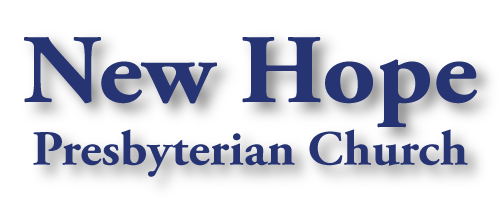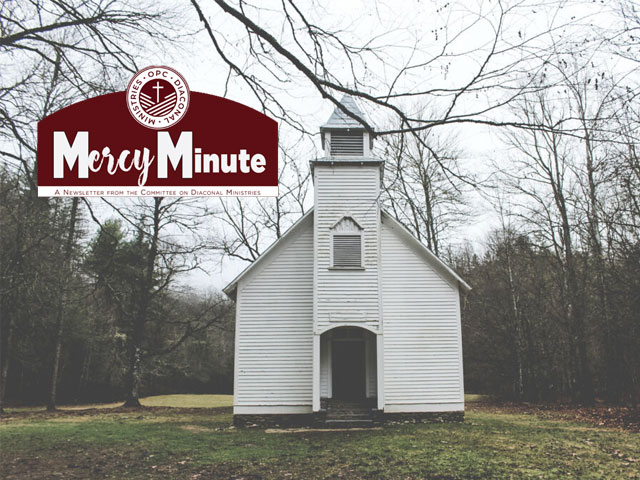What does diaconal care look like during a pandemic? Specifically, what does Christian charity look like during a time when the government is distributing monies to most citizens with one hand and limiting the opportunity for millions to earn daily bread with the other? How can deacons help and give counsel to the self-employed, the business owner, or the “non-essential” worker? How can deacons encourage the members of the congregation who find their cups suddenly overflowing to give from their abundance to those whose cups are hollow or empty?
Perhaps you and your diaconate have had to wrestle with one or more (or all!) of these questions during the last three months. Perhaps the list of considerations above falls far short of the breadth and depth of diaconal matters that have challenged your congregation. Or perhaps your biggest hurdle to overcome has only been figuring out the new means and methods of taking up the collection of the saints without passing an offering plate! Whatever the challenges, unique or common, kingdom work in any age is wrought with sweat and toil and thorns, and we look to our King Jesus to sovereignly rule and overrule all the decisions and actions of his undershepherds.
If your experience as deacons was anything like ours in northwestern New Jersey, you reacted to the shut-down of “non-essential” businesses and the ever-broadening stay-at-home orders of late March by bracing for the worst and preparing for a host of needy families. How many breadwinners would be out of work—and for how long? How many households would find a month (or more) without income to be more than they could endure? Our pastors prayed for our congregation and specifically for us deacons every week from the pulpit. They prayed for our church’s giving, and for the wisdom to be good stewards of it.
Since we weren’t seeing them in person, we deacons started regularly calling all the households under our diaconal care—checking to see if income was interrupted or lessened, if family members were healthy, and to ask if there were any diaconal or spiritual needs. Praise the Lord, it was mostly good news through April, even from many of the families with young children. But then, by the end of April, the first signs of distress showed: a young hairdresser laid off, a woman in town visiting the Food Pantry and asking to speak with a pastor, a doctor in the congregation whose patient load at his private practice was reduced to a trickle. What’s more, we assumed that others were suffering in silence and we continued to check up.
Even once some specific needs were made manifest, it was still a challenge to know how to respond—and to what degree. We had our deacon discretionary fund from the church budget, but what would the congregation’s giving be like while not meeting in person? Would members continue to tithe? Or would some hold back in fear of an uncertain future? What if the first families that needed assistance drained all our resources? It became very apparent that we needed the Lord’s wisdom to know how to respond promptly to immediate needs without ultimately knowing how many other families would eventually need help before things were “back to normal.” We also needed to discretely communicate the needs of the church and community and solicit the help of the congregation to meet them.
The first and most tangible way that our congregation responded to our request for help was keeping the Food Pantry stocked with food and gift cards. The Food Pantry is not a very visible ministry even when we meet in person for worship, and how much more potentially forgotten when we worship from our living rooms! But an announcement in our bulletin and our private Facebook group was all it took to prompt the Lord’s people to drop off food, diapers, and gift cards to the church building on weekdays. And we’ve been able to express our gratitude and encouragement back to the congregation since the donations have been distributed and used as quickly as they’ve been dropped off.
Our congregation has also been stirred to give to the needs of others through financial gifts as well. I have had more than one conversation with a member of our fellowship who, when asked if he had financial needs, responded essentially, “No, my paychecks have been uninterrupted and I feel almost embarrassed to receive a stimulus check from the government. There are so many people who need it more than we do.” It’s encouraging to hear testimonies like this from fellow members of Christ’s flock—brothers and sisters looking at an unexpected financial windfall as a means to help meet the needs of others. This is a practical living out of Philippians 2:4, “Let each of you look not only to his own interests but also to the interests of others.”
What a blessing to be a deacon during COVID-19! What an honor to be called to care for our Lord’s precious sheep during a pandemic! It has prompted me and my fellow deacons in our fellowship to be much more intentional and proactive in our conversations with families. Would that we were always this active. Each press conference and governor’s edict have caused us to take a fresh look at our church’s needs and abilities and to pay careful attention to those at highest risk. Would that we were always this attentive.
The financial turbulence has weakened or dried up the income streams of many but has filled the cups of others to overflowing. When these cases take place side-by-side in Christ’s church, however, we are reminded of the Israelites gathering God’s manna: “whoever gathered much had nothing left over, and whoever gathered little had no lack.” Throughout all generations, He is always the source of our daily bread. The eyes of all look to Him and He gives each their food in due season. In feast or fallow, in plenty or pandemic, or He does not let His children go hungry.
Visit the website for The Committee on Diaconal Ministries of the Orthodox Presbyterian Church. Click here

